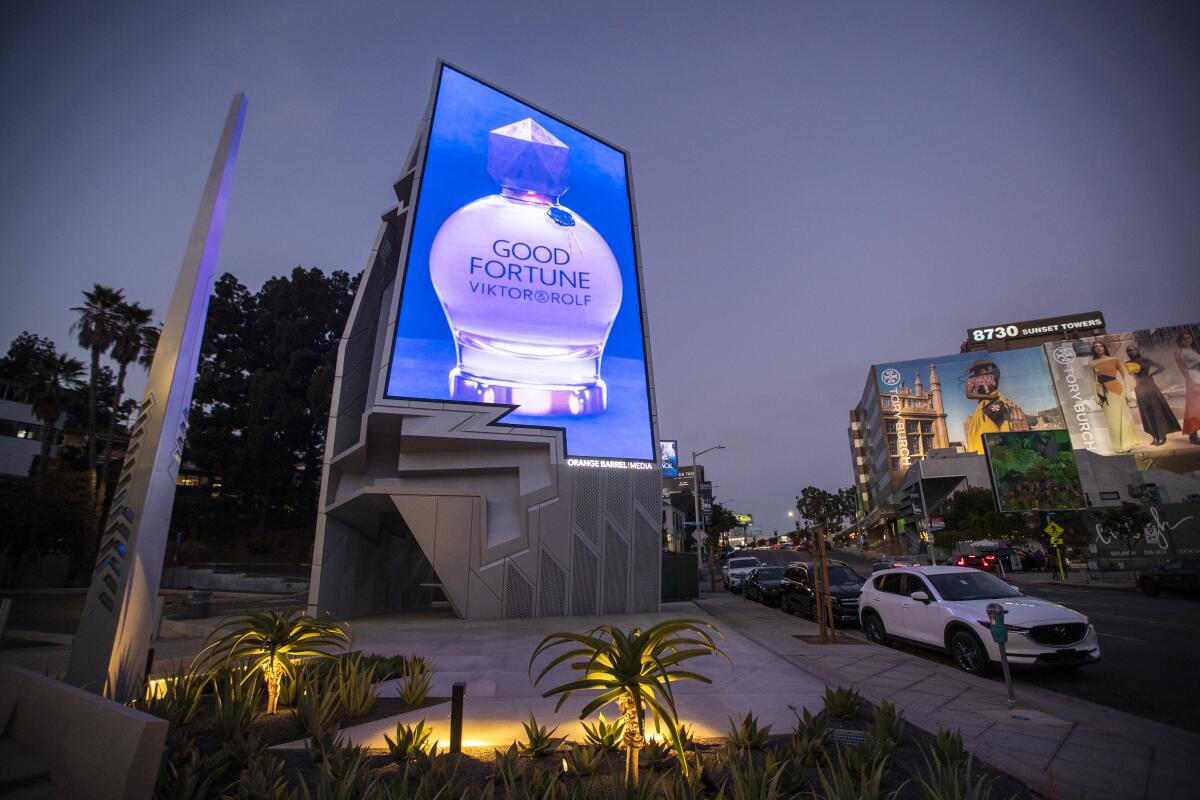Calendar Feedback: Origins of ‘beyond the pale,’ a salute to TV credits

- Share via
A rethink in architecture
As a SCI-Arc alum (class of 2001), I thank you for Carolina A. Miranda’s column about the Sunset Spectacular [“Form, Function, Furor,” Aug. 26], which because of the visibility of the underlying story, should prompt a rethink of the “bent” heart of architectural power and labor practices — if not for the present generation of practitioners, then at least for students today who will become practitioners in the future.
And if I also may answer the question you posed, architecture should also be examined in relation to how it was made, by whom and especially, at whose expense.
There is a greater story of beauty to be told in architecture beyond formal aesthetics.
Jeff Chan
Singapore
::
The use of unpaid interns is a common “dirty little secret” in the architectural profession, and is a serious barrier to entry for the less economically advantaged, who have been historically underrepresented.
For a profession in need of greater diversity, we as architects must do a better job of outlawing this exploitative and discriminatory practice.
Alex Ward
Santa Monica
Parsing the ‘pale’ phrase
It would be helpful for the reader, though it may not be for Mary McNamara’s column [“Fantasy that We Can All Believe,” Aug. 29], to know that “pale” in the phrase “beyond the pale” is derived from the Latin palus, meaning a pole or stick.
Pales were used to mark the limits of a community, and the word was used as early as the 13th century.
Alex Austin
West Hills
::
I’m 82 and my grandparents from both sides of my family came to the U.S. from Ukraine, Latvia and Lithuania, all part of the Russian Empire, in the late 1890s.
All my life I have understood that the expression “beyond the pale” referred to the Pale of Settlement, an area in the Russian Empire where the Jewish people were forced to live. Am I wrong?
Julie Allan
Los Angeles
Music is the cruelest cut
Regarding Meg James’ article “TV’s Credit Squeeze” [Aug. 31]: By cutting the credits short, we also miss the music under them, often the perfect way to end a great movie.
I’m thinking of “That’s Amore” at the end of “Moonstruck” and “Que Sera, Sera” at the end of “Nurse Betty.” At least I think that’s how “Nurse Betty” ends. Peacock cut it off after two bars of music.
Even PBS has gotten into the act. “Last Tango in Halifax” ended with the leads, Derek Jacobi and Anne Reid, at a tea dance. The scene and mood were rudely interrupted by a promo for another PBS program.
Eric DeWeese
Pasadena
This just in ...
Regarding Alexandra Del Rosario’s online article: “Kanye West is Back on Instagram — and Already Trashing the Kardashians and Davidson” [Sept. 2]
We don’t care.
Clint Trout
San Diego
More to Read
The biggest entertainment stories
Get our big stories about Hollywood, film, television, music, arts, culture and more right in your inbox as soon as they publish.
You may occasionally receive promotional content from the Los Angeles Times.











